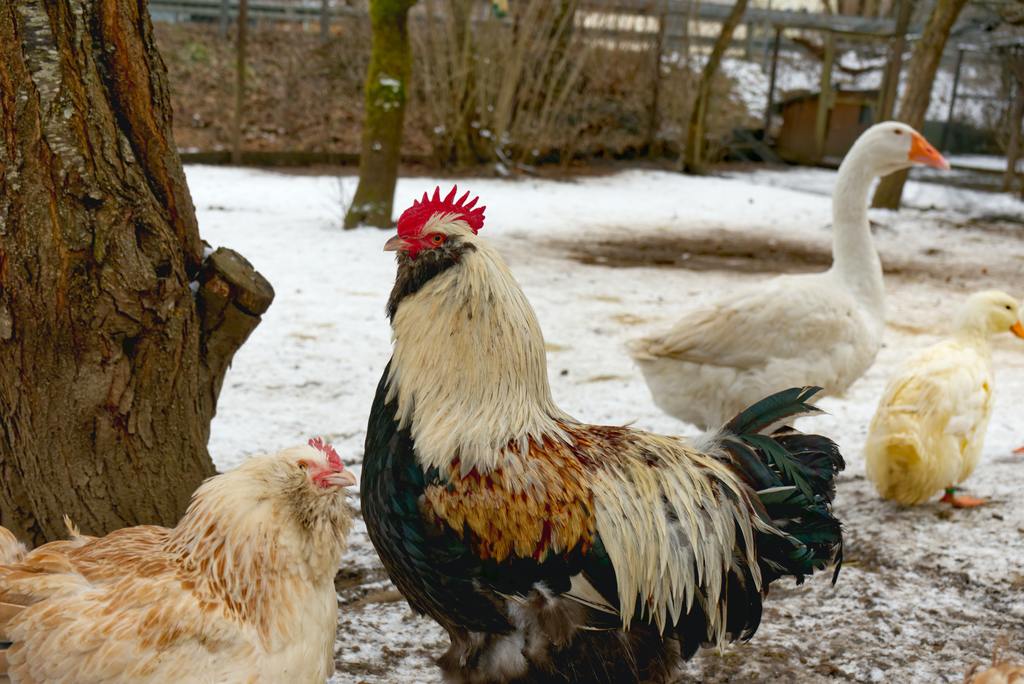Chicken-Keeping Winter Checklist
It is normal to worry about your chickens as the weather gets colder and to wonder what you should do to keep them warm, happy, and healthy. There are a few dos and don’ts that we will discuss in this article about how to take care of your chickens during the winter.
What you should do
(1) Use Sunlight
The sun is a natural heat source that you can take advantage of for your birds. One of the best options is to use windows with insulation that will trap the heat from the sunlight throughout the day and keep it warm in the coop.
You can also incorporate a run into your coop for those chickens that get antsy and want to get some fresh air. Maybe it is too cold for them to be fully outside in your backyard, but this way they can still feel the sun on their feathers.
(2) Collect Eggs More Often
When your hens are laying eggs in the winter the below-freezing temperatures will make the eggs start to freeze. If the eggs do freeze, then they will start to expand and eventually crack. You will need to collect your hens’ eggs more frequently throughout the winter to keep this from happening.
(3) Use a Water Heater
Your chicken’s water will freeze once it hits colder temperatures. You could either change their water often or invest in a water heater that thaws it out. If your chicken gets dehydrated, then your chicken could get sick, and it will cause a decrease in egg production.
If you do not want to make this investment, then you could incorporate a “sunroom” into the coop and keep the water in that section so that the sun will thaw it out. You can gauge if the place you live gets enough sun during the winter for this option to make sense or not.
(4) Provide Stimulus for Your Birds
Your chickens will get bored easily during the wintertime. Make sure you provide items to stimulate them to keep them busy. This could be a swing, some extra yummy treats, or a puzzle toy.
(5) Use the “Deep Litter” Method
Deep litter is a sustainable and environmentally friendly way to keep your birds warm. You will essentially create compost by layering pine shavings along with your chicken’s waste and feed. By occasionally stirring it up and adding more pine shavings, it will create microbes that will eat the bad bacteria.
(6) Feed and Water Your Birds More Frequently
Chickens are similar to us in the fact that we both exert more energy when trying to keep ourselves warm. Because of this, your chickens will be hungrier and thirstier throughout the day. Make sure the food that you add to their diet for this season is rich in nutrients and probiotics so it will give an additional boost to your bird’s immune system.
A great option is Supreme Grub’s Black Soldier Fly Larvae. This will be a yummy treat for your feathered friends and it contains 40% protein, 25% fat, and 80x more calcium than mealworms.
What you should not do
(1) Do Not Stress
Chickens are more resilient than you think. They are able to withstand cold temperatures with minimal assistance from you. These tips and tools in this article will help you feel more prepared. You already care about your chickens’ wellbeing by reading this.
(2) Do Not Use a Heater
A lot of people think that using a heater will help with warming the coop in the winter. However, this is a huge fire hazard considering the flammable material lining the bottom of your coop. It could also get too warm and cause your birds to overheat during the night.
Chickens’ body temperatures are naturally about 106 degrees Fahrenheit, and they have plenty of feathers to keep themselves warm. You may also see your chickens huddling together and this is their natural way of getting warmth from one another.
(3) Do Not Seal the Coop Completely
Your first instinct may be to close your chickens in at night and keep as much cold air out as possible. However, this traps the humidity inside and increases the chances of the coop developing mold that could make your chickens sick.
You should have some sort of ventilation for your birds. The best way to vent the cold air is through the top of the coop so that your birds will not have cold air blowing directly on them throughout the night.
(4) Do Not Forget a Roost
If you do not already have a roost in your chicken coop, then you will need to get one for winter. Chickens naturally roost together and as previously mentioned, they will do this at night to keep warm and because it is comfortable.

